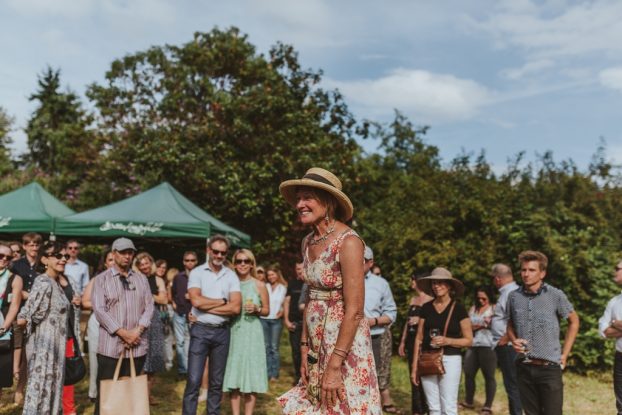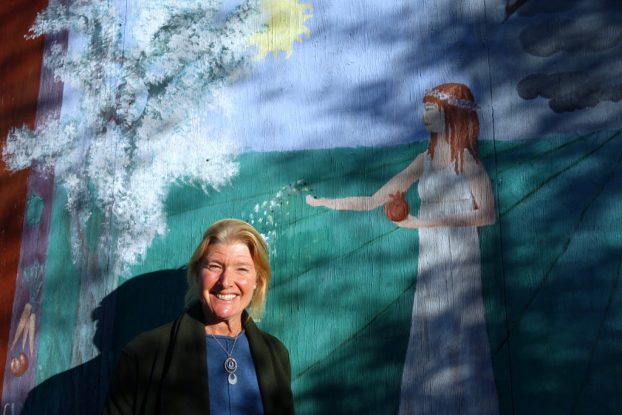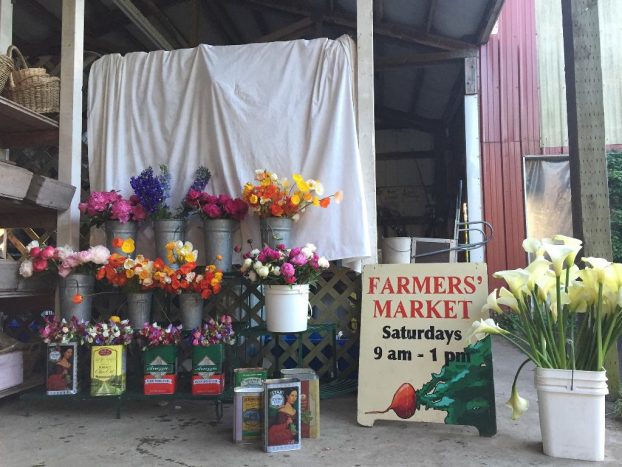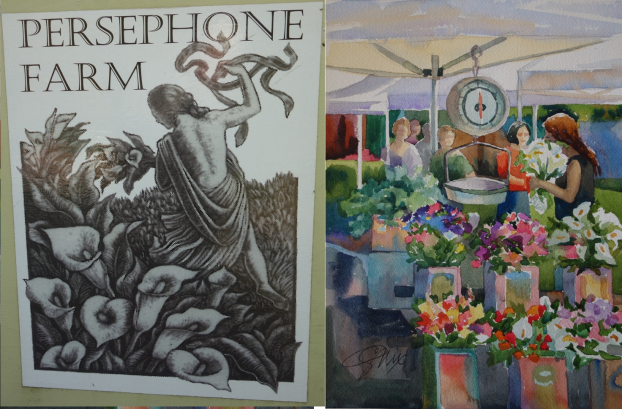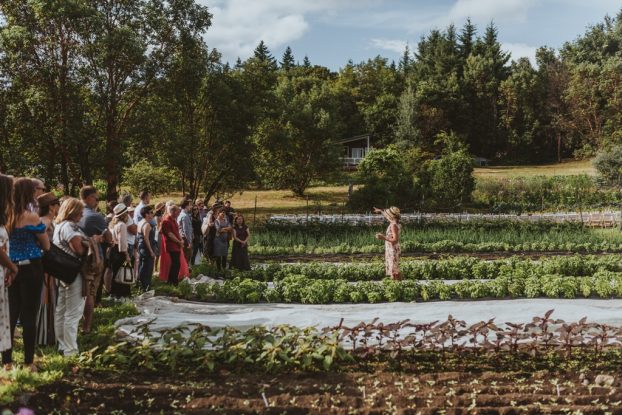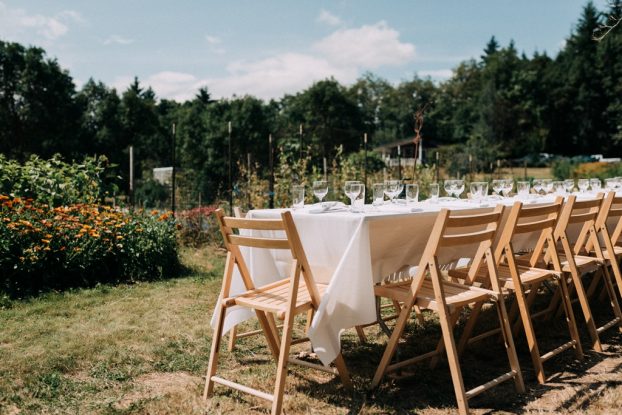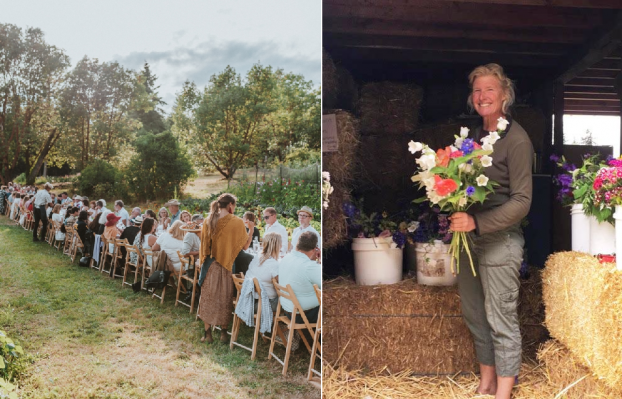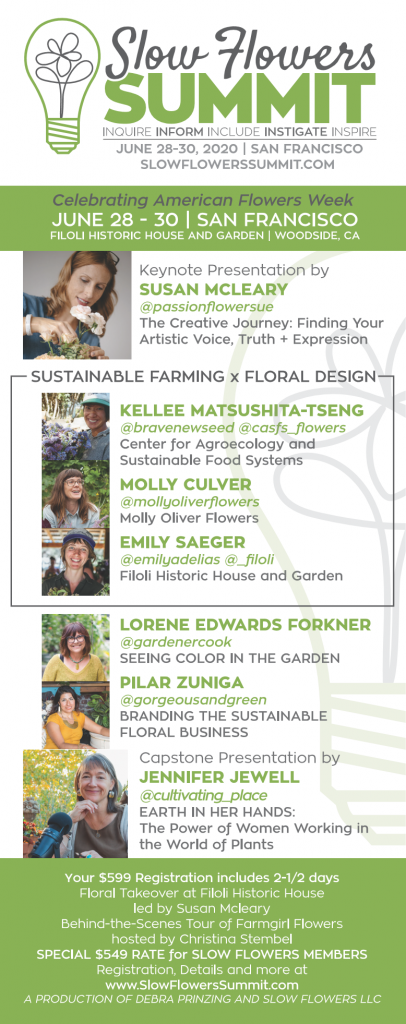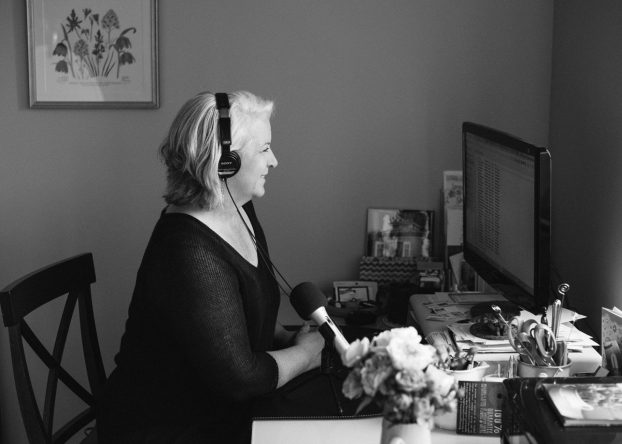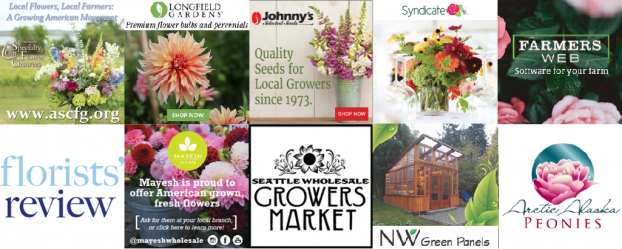Podcast: Play in new window | Download
Subscribe: Apple Podcasts | Podcast Index | RSS | More
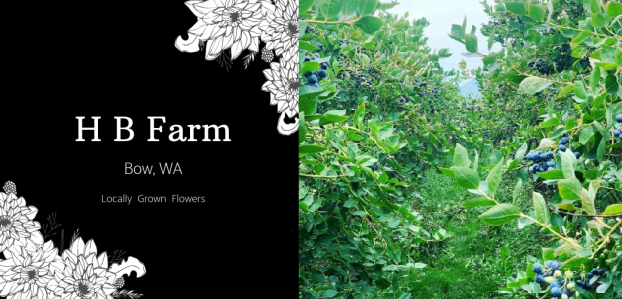

I’m so happy to share my conversation with Heather Schuh of HB Farm with you today. We recorded it last Saturday after the July “Best of” Workshop that Slow Flowers produced for the Seattle Wholesale Growers Market where HB Farm is a member-grower.
It was serendipitous that we would be in the same place on the same day — Heather presented about blueberry, blackberry and raspberry cuts for foliage, along with Kristy Hilliker of B&B Family Farm who gave a fabulous lavender talk. Following their educational presentations, Melissa Feveyear of Terra Bella Flowers designed a lush and abundant summer arrangement using the berry foliage and lavender, along with companion stems. The presentations can be found on the Growers Market’s IGTV feed:
Part One: Lavender with B&B Family Farm and Berry Foliages with HB Farm
Part Two: Floral design demonstration with Melissa Feveyear of Terra Bella Flowers
I say it was serendipity that brought Heather and me together to record — socially-distanced on opposite sides of the room — because this is an interview that took one year to accomplish! I had reached out to Heather to set up an interview last summer, only to discover that the date I wanted to visit HB Farm was also the date that Heather was hosting her son’s wedding at her farm (oh, and designing the flowers, too).
I’m so glad we make it work this past week and I learned a lot about this serial entrepreneur who has a background in timber, home construction and interior design. For Heather, it started with blueberries and she has come full circle to return to blueberries, but in a modern, design-forward way.
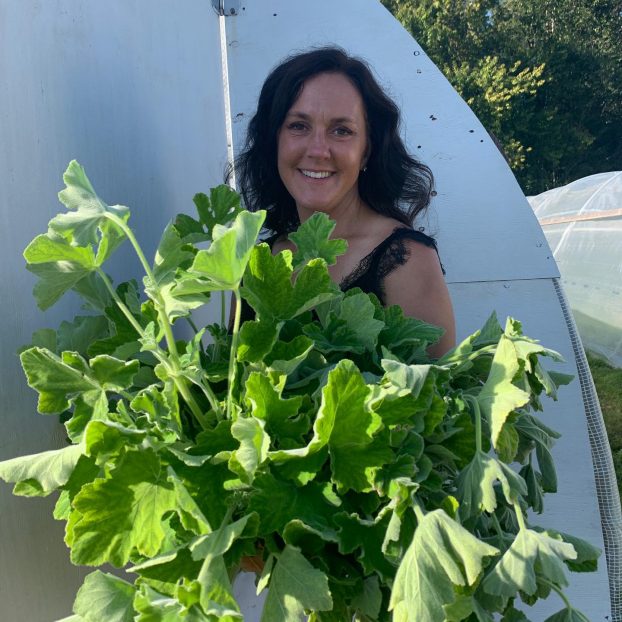
Here’s a bit more about Heather Schuh and HB Farm:
Her family has been farming the land that is currently HB Farm since the 1940’s. During that time the ground has seen several crop successions. Heather remembers helping plant raspberries there in 1975 and when the raspberry market changed in the early 80’s all of the farmland was converted to Blueberries.
She says this: The biggest lessons I have learned from farming is that it isn’t easy, and to be ready to innovate and make changes due to market demands and conditions.
In 2015 the market for Blueberries was inundated with overproduction. Farms that were planted throughout northern Washington State and even to the South started to produce everything they had planted approximately 5 years earlier. Suddenly, the need for small producers to sell their products to larger wholesaler simply dried up, leaving family farms like HB Farm stuck with Blueberries that no one wanted.
After much discussion and the desire to continue to farm, Heather and her husband Brandon decided to dig up and sell as many of their blueberry plants as they could, after which they began converting their fields to flowers.
That next chapter continues today. Heather calls farming a “lifestyle” summed up by rising early to harvest and do all of the watering and chores associated with farming and going to bed late when your body is aching from all of the hours of hard work.
She believes this work ethic was passed down by her parents and grandparents, adding “Family Farms are a beautiful part of this nation’s history and I am so happy that we are able to continue our families legacy…with Flowers!”
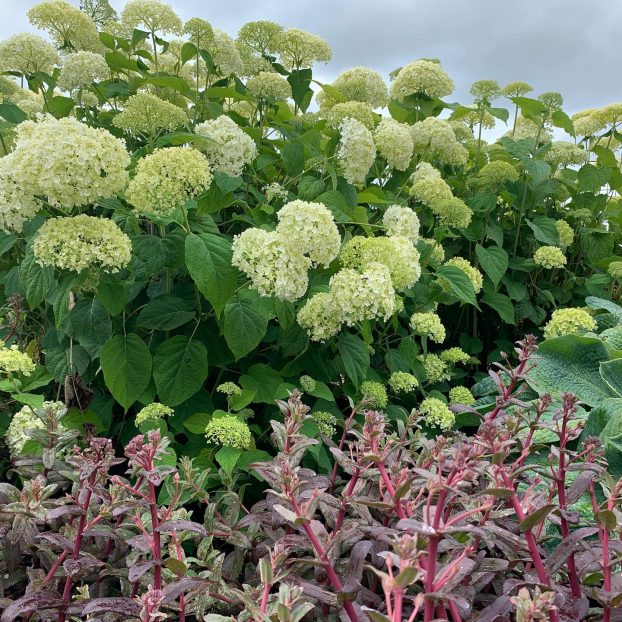
Here’s how to find and follow Heather Schuh and HB Farm:
In the coming weeks, as Heather mentioned, the Seattle Wholesale Growers Market will roll out a new and improved website. I’ll make sure to share a link when that goes Live, so you can see all of the botanicals, flowers, and foliage, from HB Farm and the other amazing farmers who are part of the cooperative.

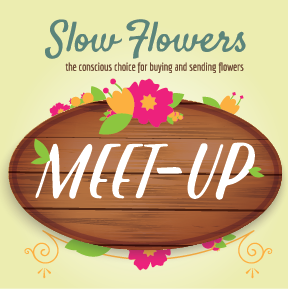
Last Friday July 10th we held the monthly Slow Flowers Member Virtual Meet-Up, our second monthly gathering via Zoom, which follows the eight consecutive weekly Meet-Ups that began in late March with the onset of the COVID-19 Pandemic.
The Pandemic continues to be top-of-mind for us all, and connecting virtually is one way to check in and listen, learn, encourage and grow with the Slow Flowers community.
Click above to watch the replay video from last week’s meet-up. It was profoundly inspiring.
Our attendees learned about the first @saytheirnamesmemorial in Portland, Oregon, created two weeks ago by top wedding designer Joy Proctor and a group of friends, artists, designers and craftspeople. Their goal was to use art to honor hundreds of Black men and women whose lives were taken unjustly. Since then, the memorial has been recreated in several more cities, including Dallas, Seattle, Lexington and Austin, with up to 10 more planned throughout the country.
Dallas creatives Alicia and Adam Rico, Slow Flowers members and owners of Bows and Arrows Flowers, were part of the team of that installed #saytheirnamesmemorial tributes in Dallas. They have since brought the installation to Atlanta and Naples, Florida. These passionate and gifted wedding professionals discussed the idea of #floralactivism and how they are using beauty and art to raise awareness, change attitudes and protest injustice in their communities and beyond.
Thank you to our Sponsors
This podcast is brought to you by Slowflowers.com, the free, nationwide online directory to florists, shops, and studios who design with American-grown flowers and to the farms that grow those blooms. It’s the conscious choice for buying and sending flowers.
And thank you to Florists’ Review magazine. I’m delighted to serve as Contributing Editor for Slow Flowers Journal, found in the pages of Florists’ Review. Read our stories at slowflowersjournal.com.
The Gardener’s Workshop, which offers a full curriculum of online education for flower farmers and farmer-florists. Online education is more important this year than ever, and you’ll want to check out the course offerings at thegardenersworkshop.com.
Mayesh Wholesale Florist. Family-owned since 1978, Mayesh is the premier wedding and event supplier in the U.S. and we’re thrilled to partner with Mayesh to promote local and domestic flowers, which they source from farms large and small around the U.S. Learn more at mayesh.com.
Association of Specialty Cut Flower Growers. Formed in 1988, ASCFG was created to educate, unite, and support commercial cut flower growers. Its mission is to help growers produce high-quality floral material, and to foster and promote the local availability of that product. Learn more at ascfg.org.
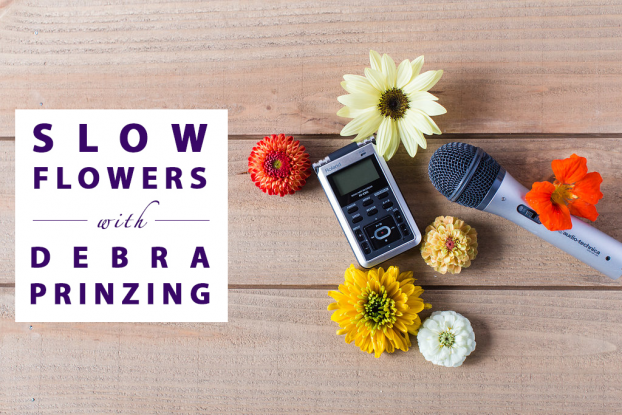
The Slow Flowers Podcast has been downloaded more than 624,000 times by listeners like you. Thank you for listening, commenting and sharing – it means so much.
As our movement gains more supporters and more passionate participants who believe in the importance of the American cut flower industry, the momentum is contagious. I know you feel it, too. I value your support and invite you to show your thanks and with a donation to support my ongoing advocacy, education and outreach activities. You can find the donate button in the column to the right.
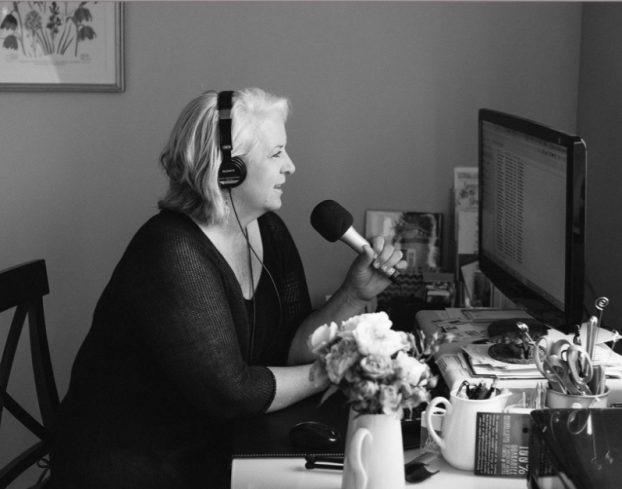
I’m Debra Prinzing, host and producer of the Slow Flowers Podcast. Next week, you’re invited to join me in putting more American grown flowers on the table, one vase at a time. And If you like what you hear, please consider logging onto iTunes and posting a listener review.
The content and opinions expressed here are either mine alone or those of my guests alone, independent of any podcast sponsor or other person, company or organization.
The Slow Flowers Podcast is engineered and edited by Andrew Brenlan. Learn more about his work at soundbodymovement.com.
Music Credits:
Turning on the Lights; Dance of Felt; Gaena
by Blue Dot Sessions
http://www.sessions.blue
Lovely by Tryad
http://tryad.bandcamp.com/album/instrumentals
http://creativecommons.org/licenses/by-sa/3.0/
In The Field; Acoustic Shuffle
audionautix.com









